What Are the Real Health Benefits of Mangoes: A Review
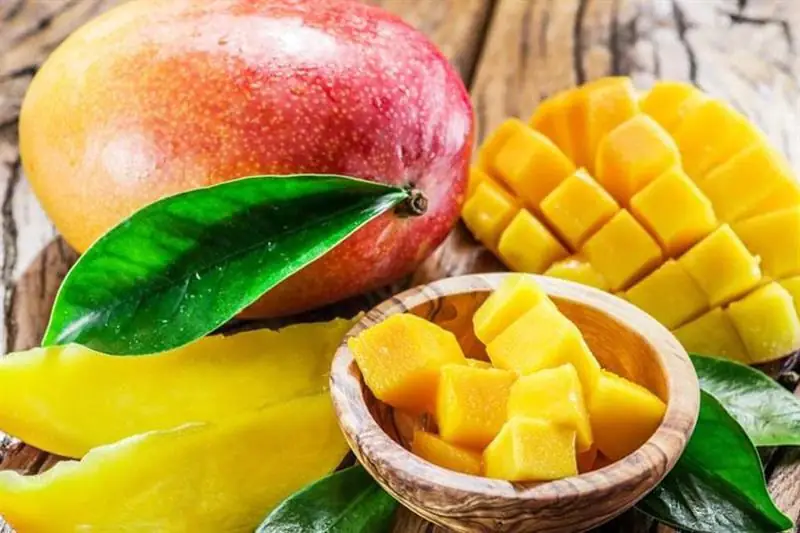
Mango, a bright-yellow fruit that comes from India, is sometimes labeled a superfood. Can such a designation be relied on? What are the health benefits of mangoes that are confirmed by modern science? Is it true that this fruit can boost your sex drive? Why is it often recommended for pregnant women?
Read on and you will find the answers to all these and numerous other questions.
What Are Mangos Good For?
Very sweet and full of water, this fruit contains vitamins and biologically active compounds that are essential for your health.
Rich in Vitamin C
A cup (148 grams or 4.9 ounces) of mangoes contains 65% of the recommended daily intake (RDI) of vitamin C (ascorbic acid). Vitamin C is a powerful antioxidant that is also extremely important for a strong immune system, skin health, and efficient iron absorption.
Still, there are foods — like blackcurrant, bell peppers (especially ones that have yellow or red color), broccoli, cauliflower, lemon, orange, strawberry, kiwifruit, grapefruit, and cabbage — that are richer in vitamin C per gram of their weight. Thus, while mangoes are a good source of ascorbic acid, it is by no means the best possible option you have.
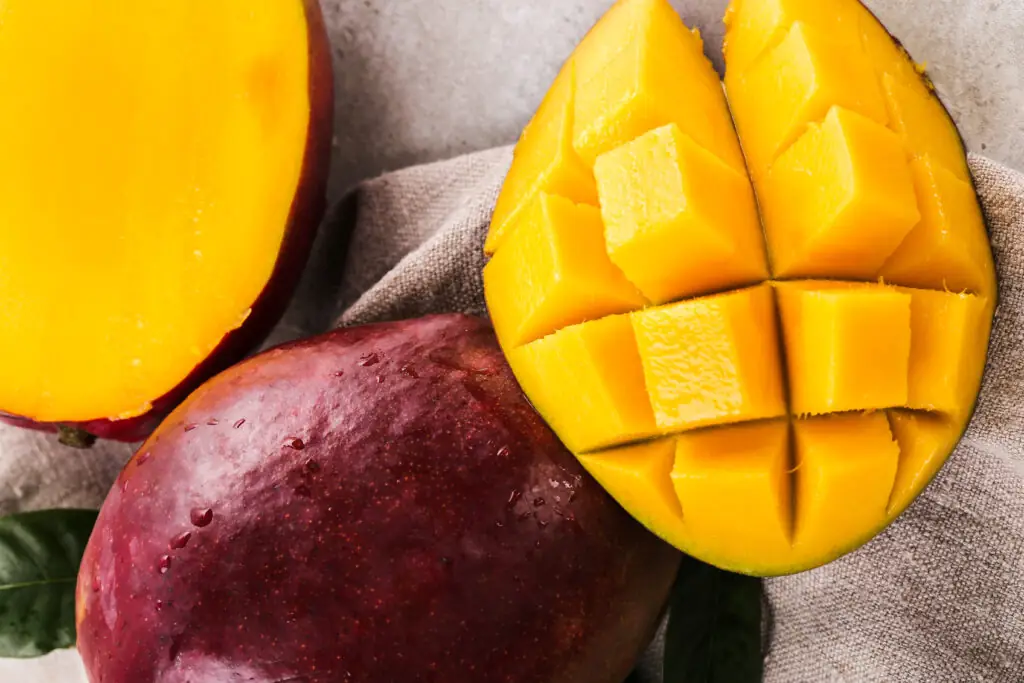
Moderately Rich in Folate (Vitamin B9)
There is about 64 mcg of folate in a cup of mangoes: this is about 15% of the RDI of this vitamin for healthy adults. Folate is important both for the nervous system and iron metabolism; lack of it in the diet can lead to anemia as red blood cells won’t be able to carry oxygen to cells and tissues.
While mangoes do not contain enough folate to be your sole source of this important vitamin, they can be combined with other fruits and vegetables for a maximal effect on your health.
Contain Antioxidants
Mangoes are rich in polyphenols that protect cells from free radicals. One of the polyphenols, mangiferin, is currently being extensively studied for its antiinflammation, heart health-protecting, and anticancer properties.
Mangoes: Drawbacks
The extremely sweet taste of this fruit is caused by the high amounts of sugar it contains, and sugar spells trouble for some people.
Rich in Sugar
A cup of mangoes contains up to 25 grams of carbohydrates including up to 20 grams of sugars. While for most individuals this quantity is not crucial, some people who suffer from diabetes may experience blood sugar spikes if they eat that much mango in a single serving.
For this reason, if you have diabetes and have never tasted mango before, start with smaller helpings (like no more than ½ cup of this fruit). As proteins are known to minimize blood sugar spikes, you might want to pair this fruit with some cheese or an egg.
On the bright side, fresh mango (but not dried one) does not contain an overabundance of calories that is likely to make you fat. A cup of fruit contains about 90 kilocalories which are only 4.5% of the recommended daily calorie intake (RDCI) for women and 3.6% of the RDCI for men.
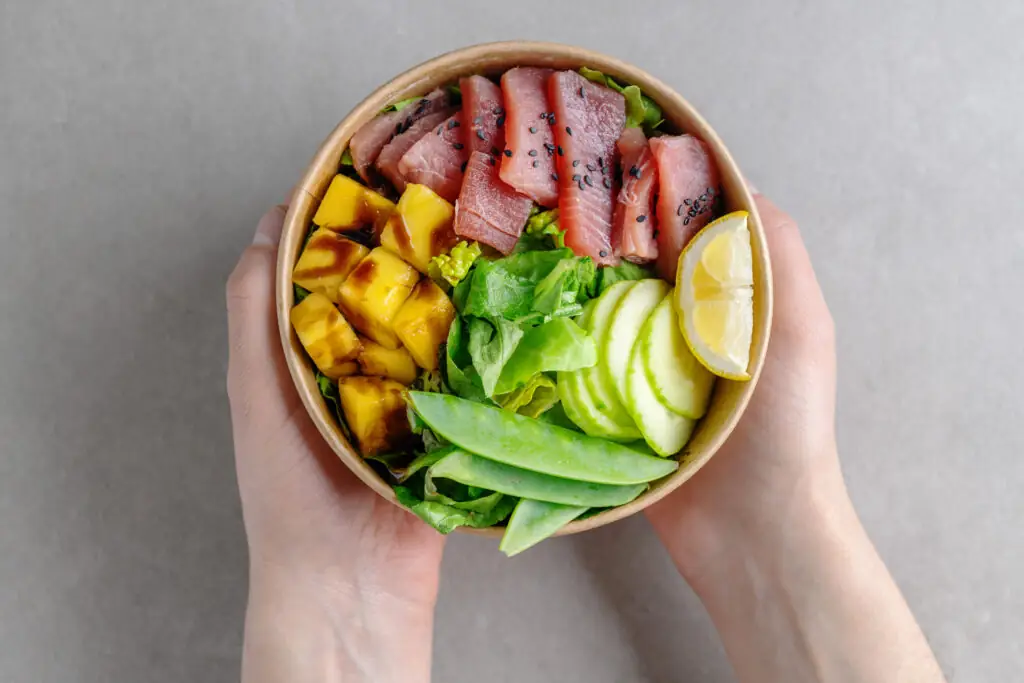
Can Cause Allergies
Some people are highly allergic to the oils present in mango skin, sap, and stem, and others have an allergy to mangiferin that is present in the fruit’s flesh and juice. Thus, to be on the safe side and protect your health, it is reasonable not to overindulge in mango the first time you eat it.
Poor in Vitamins
Mangoes are moderately rich only in two vitamins, namely, C and B9. While other vitamins and minerals are also present in this fruit, their amounts are insignificant.
FAQ
In this section you will find the answers to the most common questions about mangoes.
Is Mango a Superfood?
These days there is a tendency to overuse the superfood label. Even though mangoes are rich in vitamin C, such relatively unglamorous vegetables as bell peppers contain considerably higher quantities of ascorbic acid. When it comes to folate, avocado is a much better source of this vitamin. All in all, rather than rely on a single ‘superfood’, it is much more reasonable to enjoy a balanced diet that includes a wide number of fruits and vegetables.
Is Mango Healthier Than Apple?
While mangoes are poor in vitamins other than ascorbic acid and folate, they still contain slightly higher quantities of B vitamins compared to apples. Both fruits are equally rich in water and contain comparable numbers of calories. Still, an apple a day keeps the doctor away, as they say: eat all kinds of fruit every day and do not stick to ones that are in vogue or are arbitrarily labeled ‘superfoods.’
What Are the Benefits of Mango During Pregnancy?
Doctors recommend that women who are pregnant or plan to conceive have high quantities of vitamin B9 (folate) in their diet. Folate is known to prevent neural tube defects in newborns and therefore is extremely important. A cup of mangoes contains nearly 12% of the daily quantity of folate a pregnant woman needs.
You can also use other folate-rich foods like chickpeas, broccoli, lettuce, lentils, sunflower seed kernels, walnuts, and spinach. Another good option you have is to use a high-quality multivitamin formula:
Bioavailable B Vitamins by Jarrow Formulas

- Highly bioavailable forms of vitamins B6, B9 and B12
- Each serving contains 680 mcg of folate
- 100 tablets; 1 tablet a day
- Well-known brand
What’s more, as pregnant women often suffer from constipation, foods that are high in water (like mangoes) can help them have regular bowel movements.
What Are the Benefits of Mango Butter for Hair?
Mango butter is derived from the oil of the plant; it has a very delicate smell and an easy-to-use cream-resembling non-greasy texture. Traditionally used for hair hydration, this butter is rich in vitamins and contains numerous antioxidant compounds. Some people claim that it can be used to prevent hair loss and promote its growth.
Here is one of the most popular mango butters on iHerb:
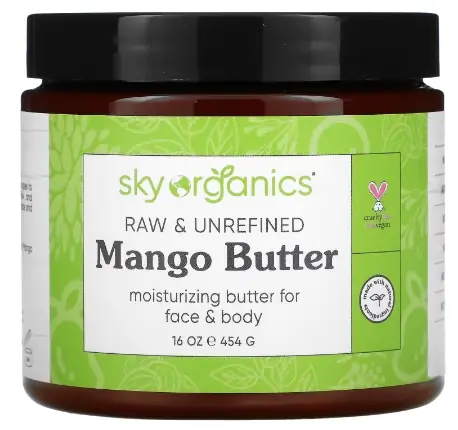
- 454 g (16 oz)
- Raw & Unrefined
- Keeps skin soft and velvety
Is It True That Libido Boost Is One of the Science-Backed Benefits of Mango?
Sexually active men and women are sometimes urged to buy this fruit because of the alleged benefits of eating mango at night. This urban myth claims that this fruit contains a lot of vitamin E, which acts as an aphrodisiac.
Unfortunately, both parts of this legend are exaggerations. First, while mangoes contain some vitamin E, they are far from being the best source of it (such foods as olive oil and peanuts contain significantly higher quantities of this vitamin). Second, vitamin E is a potent antioxidant that can improve your general health and, therefore, indirectly increase your sex drive. Whether it has direct libido-enhancing properties is still not reliably known.
What Are the Health Benefits of Mango Leaves?
The leaves of the plant are rich in complex bioactive compounds like polyphenols and terpenoids. While additional research on humans is required, preliminary animal studies demonstrate that the leaves of the plant have anti-inflammatory, antioxidant, and sugar-lowering properties and can even be used to burn excessive fat. What’s more, a 2013 study on mice demonstrates that there are some veritable benefits of mango leaves for the skin.
That said, there are people who are allergic to the leaves of this plant. If you have never tried mango leaves before, to avoid such highly unpleasant allergic reactions as dermatitis and anaphylaxis, it is strongly recommended that you start with very small doses.
The young leaves of the plant are very tender, so you can eat them as they are. It is also possible to use them for brewing herbal tea. Simply add 15-20 fresh leaves to a cup (200 ml) of boiling water and leave them for 5-10 minutes to steep.
What Are the Health Benefits of Dried Mango?
Dried mango is extremely rich in sugars: they make up about 60% of the weight of this snack. Thus, it cannot be recommended to people who suffer from diabetes or were diagnosed with prediabetes. What’s more, as dried mango contains a very high amount of fast “empty” calories, it may lead to weight gain if you consume a lot of it regularly.
On the bright side, this snack is a moderately good source of potassium that is known to normalize blood pressure.
All in all, only eat small servings of dried mango now and then. Do not neglect to do physical exercise to burn extra calories.
Organic Dried Mangoes by Made in Nature
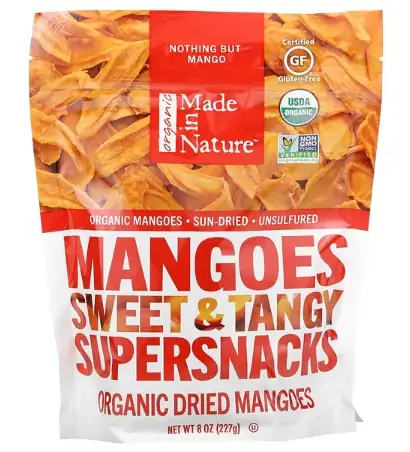
- 8 oz (approx. 225 grams)
- Non-GMO, no artificial preservatives
Is There Mental Health Support Among the Benefits of Mango?
While this fruit indeed contains B vitamins that are important for cellular energy production and a healthy nervous system, their concentration is small (such foods as eggs and legumes are much better sources of B vitamins). Still, mental work can sometimes consume huge amounts of energy, and caloric food like dried mangoes can help you replenish it.Now you know what are the health benefits of mangoes and what drawbacks this fruit has. Even if you limit your daily calorie intake, you can still enjoy a cup of chopped fresh mangoes, as it won’t do much for your waistline. If, on the other hand, you regularly treat yourself to a dried variety of snacks, strenuous physical exercise is really a must, or you will quickly gain weight.